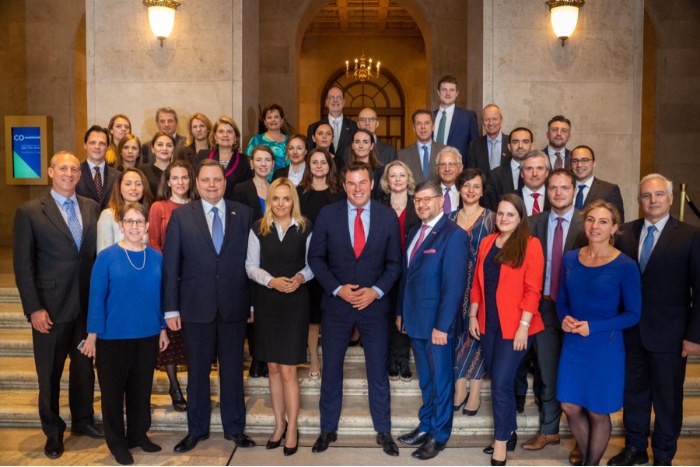
Ahead of the European elections, and in light of the difficult state of play in transatlantic trade talks, the U.S. Chamber carried out trip to Europe. Key takeaways as follows:
There’s a growing divide between France, Germany, and the rest of Europe. Smaller member-states are growing frustrated by France’s hardline positioning on Brexit and reforming the Eurozone. They also feel like Germany and France are teaming up on tax, procurement, and competition policy in ways that will hurt smaller countries. This may be a sign of things to come after Brexit.
Brexit itself remains completely intractable – and European positions are hardening against the UK.
Analysts in Germany, France, and Brussels expect the UK to waste most of the time before October 31 on internal debates (like who will be the next PM) instead of sorting the terms of Brexit, and will ultimately need to request another extension. The rest of the EU may well reject that request, unless it is to provide time for a second referendum or a general election which could significantly change the dynamics of Britain’s future relationship with the EU.
Political disruption is likely after next week’s European elections – even in Germany.
With populists expected to win roughly 1/3 of the seats in the European Parliament—the center right EPP and center left S&D are almost certain to lose their combined governing majority. In the UK, the Brexit Party will likely place first, and Marine Le Pen’s far-right National Rally may take first again in France. The center-left SPD in Germany is also likely to lose sway to the populist Alternative for Germany. If that happens, the SPD could pull out of the governing coalition in Berlin and Chancellor Merkel may be forced out of office early.
Transatlantic gaps are widening in key policy areas beyond trade, including defense, tax, and sanctions.
Beyond the reiterated threat of looming tariffs on imported European cars, which would eliminate any chance of deescalating trade tensions, significant transatlantic policy rifts are widening. These include: future EU defense initiatives, NATO burden-sharing, and defense industry procurement; the potential for several iterations of digital services taxes proliferating across Europe; and divergent approaches to sanctions on Russia and Iran. In each of these areas, there are significant downside risks for the transatlantic business community.
On China, there’s a growing alignment of interests between the U.S. and Europe that we must capitalize on.
One ray of hope from the visit was the growing consensus of the need to “do something” together on China – including updating the WTO rulebook, jointly defining and protecting against state subsidies and forced technology transfers and fighting against data localization policies. In Europe, there is also a growing realization that the window for effective cooperation and action on China is narrowing as the Chinese economy grows and China expands its international influence through the Belt and Road and Made in China 2025 initiatives.
On May 17, the U.S. Chamber received the official word that the White House is delaying the implementation of Section 232 tariffs on autos and auto parts from Europe (and Japan) for the next six months. While the markets have initially reacted somewhat positively to this news, this is a very concerning development. By insisting on voluntary export restraints or auto export quotas that the EU will never agree to, the White House is significantly upping the stakes and the likelihood that these tariffs will in fact come.
Here's the official White House announcement; the Chamber's reaction outlining its insistence that this is a gross misuse of the "national security" exemption; and a response from EU Trade Commissioner Cecilia Malmstrom indicating their interest in finding a "limited trade agreement" with the U.S., while rejecting managed trade.
Source: ws, AmCham Czech Republic